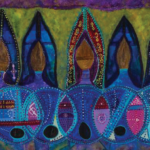J-schools more vital than ever

By
Robert Washburn

However, the days of journalists avoiding j-schools are coming to a close. The demands of the new environment create an expectation of skills far beyond those of simple curiosity, tenacity, critical thinking and a natural gift for storytelling. The technical requirements alone demand the ability to work with multiple media, not just text. Stories are being told via traditional media of print, radio and television, but also on the World Wide Web, where text, images, audio and video are being woven together to create new forms.
But before going too far, the fundamental skills, like critical thinking, storytelling and so forth, will never leave journalism. Those with a natural ability to weave beautiful, simple, clear narratives will always be in demand and prized by newsrooms. But the days of a single medium to relay those narratives are fading quickly. Text with images in newspapers is being altered by the addition of video gathered by both reporters and photojournalists. Radio journalists are being asked to take pictures and write text to accompany audio stories posted to the web. The same is true for television journalists. For some time, broadcast journalists have collected material for both radio and television. Audio is stripped from video for play on radio. The combinations of skills needed by journalists are no longer narrow.
Training veteran journalists for this new medium is becoming costly and time consuming. And, with the current recession, this type of commitment to professional development strains budgets. Even in the best of times, some journalists were left on their own to expand or enhance skills, especially in small and medium size newsrooms. The new set of skills cannot be easily obtained in a 90-minute presentation at a conference or workshop. It demands practice in order to meet the professional standards whether it is writing text for radio web sites or producing video for newspapers sites.
J-schools are becoming more relevant in this context. Educators understand new curricula is necessary to train future journalists to fit into demanding newsrooms. And, it is not easy. It would appear on the surface that newsrooms want “super journalists” who can do everything from research to gathering the content to produce a variety of pieces for the various media. At times, it is overwhelming to think one person could even try to attain this goal. But the current economic paradigm, where newsrooms are shrinking in the face of massive layoffs, only emphasizes the demands of employers to use fewer people to produce more. It is not surprising then that some seek these kinds of journalists. One employer recently said he would not even hire a journalist for his small town newspaper without the ability to shoot and edit video for posting to the internet.
This is the greatest challenge for educators. It is impossible to teach everything. And, the forms and formats, like inverted pyramid, features, profiles and so on, have been around for more than 150 years. These are highly defined and well tested as norms in journalism practice. Digital storytelling is an emerging form and experimentation is taking place constantly. There is very little history and few are accepted widely as “standard.”
New technologies constantly change the landscape, placing huge pressure on educators to keep themselves properly trained, let alone the students they teach. Program planning meetings are filled with debate over how much HTML coding is needed, as well as video editing, only to be balanced with writing and interviewing skills. Should students learn how to take pictures or will this be replaced by video only? And, it is important to remember, programs generally last two to four years. For every new skill added to the curriculum something else is forfeited. And despite the current fetish with technology, a journalist’s ability to research, gather and tell good stories remains paramount. It’s like the guy on the Ed Sullivan Show spinning plates, madly dashing around trying to make sure one does not fall.
The transition from traditional to new skills is unavoidable. In the face of the early retirement packages and layoffs gutting newsrooms during this recession, it begs the question of what skills will be required once hiring starts as the economy rebounds. The traditional models of the news industry, both economic and journalistic, are being reconsidered as part of corporate restructuring, as new configurations are being adopted to ensure the survival of these companies. For management, the economic downturn may facilitate a purge that will make it easier to migrate to less expensive distribution on the web.
There are also pressures outside the newsroom, as amateurs are being used to produce more material. Blogging, Facebook and Twitter are new technologies that are giving rise to emerging forms of distributing news and information. Citizen journalism, where non-journalists produce news for posting on web sites, is a growing phenomenon. Tasks like monitoring weather to full-blown news coverage are being actively solicited by newsrooms. In some cases, like NowPublic.com, it is the sole source of news. While journalists may rebuke these submissions, managers see it as a way to reduce costs and garner audience loyalty. Then, there are fellow journalists who see it as a means to strengthening journalistic practice. The danger is that this devalues the professionalism of journalists and the skills necessary to perform the job.
Again, j-schools perform an important role in providing credentials based on standards set in consultation with industry that are tested and ensure compliance. Certainly, there are cases where students graduate with the minimal levels of skill and critics often parade these out. While these situations are embarrassing, it is not the norm. We may even be entering a period where the graduates will provide training for the new technologies to the veterans.
In the face of all these pressures, credentialing of journalists may be necessary in the future. Many professions, from accountants to lawyers to doctors, have a system that governs their practice. It is time journalists entered into a serious debate about the need to adopt a similar program. A Canadian College of Journalists could go a long way to ensure the quality, trust and credibility of professional journalists in the future.
In light of all these issues, it would appear there are so many challenges and so little time to discuss them as the industry is swiftly transforming, driven mainly by economics and not journalism. Yet, if journalists and educators fail to join in a constructive and substantive discussion, forces outside may overtake the process and the price paid by the profession may never be recovered.
Robert Washburn is a J-Source contributing editor and professor of e-journalism at Loyalist College in Belleville, Ont.
[node:ad]



